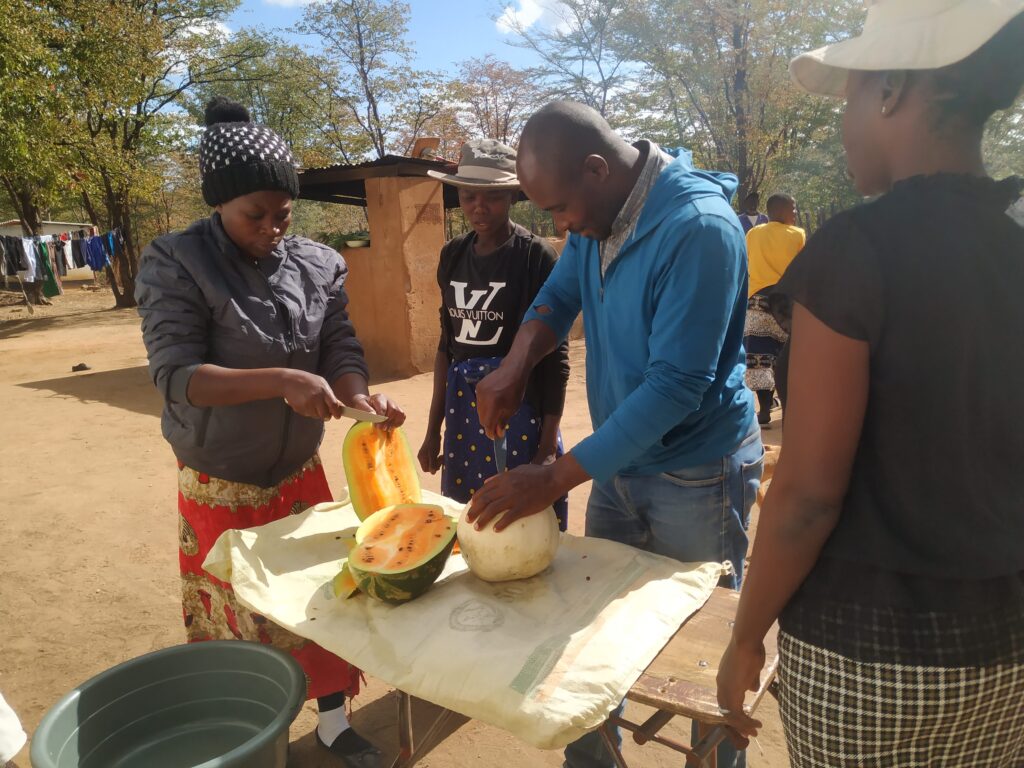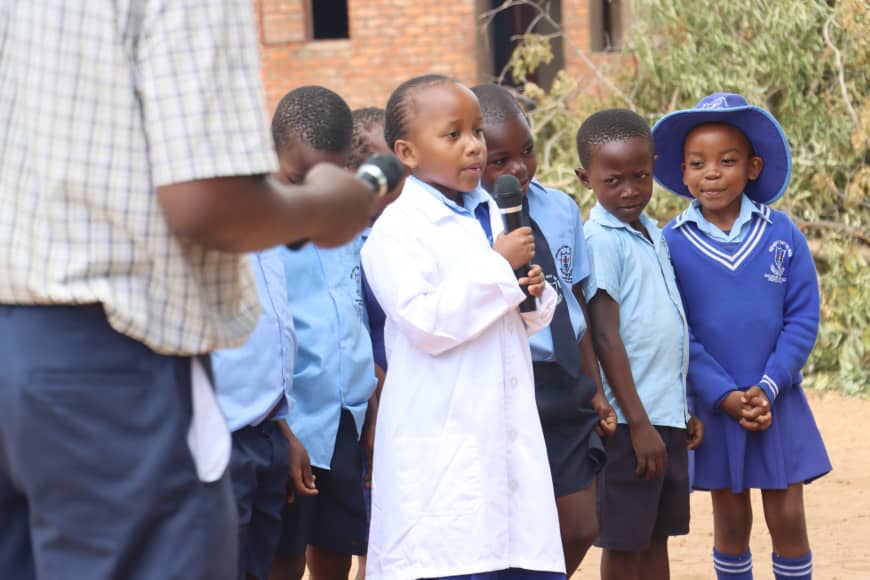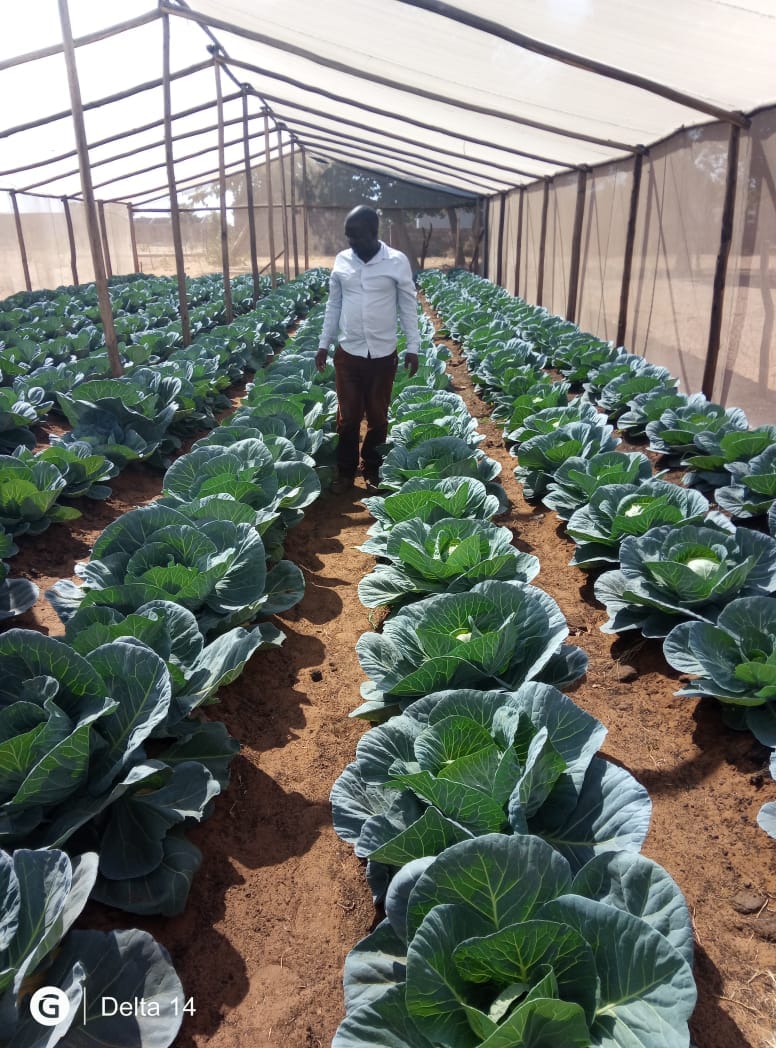How the Advocacy Academy strengthened a grassroots organisation navigating funding challenges and climate impacts

When the Christian Youth Volunteers Association Trust (CYVAT) joined ICAAD’s Frames: Human Rights for Impact course in late 2024, they weren’t just seeking capacity building. They were looking for peers in navigating this challenging moment for their organisation.
CYVAT has spent nearly three decades working with vulnerable communities in rural Zimbabwe. Since 1995, they’ve focused their efforts in districts like Matobo, Binga, and Lupane, dedicated to infrastructure development, climate-smart agriculture, water and sanitation, and education with an approach that epitomises design justice.
Their strength? Community ownership. When people shape their own development solutions, those solutions stick.
However, 2024 brought serious challenges. Like many grassroots organisations, CYVAT felt the squeeze of a competitive funding landscape. USAID ended their funding, and the funding pool for meaningful development projects around the world shrunk.
The organisation had to make tough choices. They lost their office space and now work from cramped rented accommodation that’s inadequate for their staff. They rely on old computers with limited internet connectivity. Staff members work on a voluntary basis to hold over projects, and the financial crisis threatens to scatter the team that built deep relationships across rural Zimbabwe over decades.
Yet, when Michito Mudimba, Program Manager, and her colleagues from CYVAT logged into the Frames course, something shifted. “Frames was really more than a course. It was about confidence,” Michito said. “I participated with my organisation, and it stoked our passions for the work we do. The course was more than I was expecting. You feel like you’re not the only one in this fight.”

The Power of Global Solidarity
The virtual classroom became a space of connection across continents. “It was great to interact with people from around the globe,” shared one CYVAT team member. “The facilitator was so clear and patient with us to respond to our questions as per our need. I learnt a lot from the breakout rooms in terms of the uniqueness of different issues affecting different countries.”
This global perspective came at the right moment. CYVAT’s communities face the sharp edge of the climate crisis in Zimbabwe, and women and children feel outsized impacts with water scarcity, food insecurity, and disrupted education when schools flood or infrastructure fails.
The organisation’s deep community relationships put them on the frontlines of developing climate responses that center justice and equity, and they’re well positioned to usher in change.
Their current School Based Climate Smart Conservation Agriculture project runs through 2026 and shows this approach in action. Rather than imposing solutions from outside, CYVAT is working alongside communities. It’s the same philosophy that earned them a merit award from Zimbabwe’s Ministry of Education for their “Better Schools” program in Lupane.
Despite the funding challenges, they are deeply invested in their communities and have an increasingly systems-oriented approach to cultivating change that goes beyond harm reduction.
Organisation Transformation in the Advocacy Academy
The Advocacy Academy gave CYVAT concrete tools that they’re already using in their communities. The course provided frameworks for human rights advocacy that go far beyond theory.
“Now, we know what we’re talking about when it comes to human rights,” Michito explained. “We know how to involve the right people. It’s also going to help us with writing proposals and doing monitoring and evaluation.”
This knowledge has been put to work immediately. CYVAT now uses human rights frameworks in their climate adaptation work, ensuring vulnerable community members have stronger voices in decision-making processes. They’re building out advocacy strategies to ensure their learnings from working with communities inform systems change at the highest levels.
The course also built their organisational confidence. Where funding challenges once felt isolating, CYVAT now sees themselves as part of a global movement of human rights defenders. This shift in perspective already shows results in their community work.
Why CYVAT Deserves Your Support
CYVAT represents the kind of grassroots development organisation the world needs more of. Their 30-year track record proves they know how to create lasting change. Beyond their experience, it’s the approach that makes CYVAT special. While many organisations impose solutions from outside, CYVAT builds community-led development from within. They don’t just deliver programs; they build capacity that lasts long after projects end.
Their financial crisis reflects how funding systems often fail the most effective grassroots organisations in Africa. CYVAT’s bottom-up approach takes time, but it creates the deep, systemic change that transforms communities.

The Road Ahead
CYVAT stands at a crossroads. Climate impacts are intensifying in rural Zimbabwe development, and communities need organisations like CYVAT more than ever. Their staff brings decades of irreplaceable experience and hard-won community trust.
Supporting CYVAT means investing in proven, community-led solutions to climate change in Zimbabwe. It means backing an organisation that puts justice and equity at the centre of climate adaptation.
- Follow CYVAT on social media to stay connected with their community development initiatives in Zimbabwe
- Connect them with potential funders who value long-term, participatory development
- Learn more about ICAAD’s Advocacy Academy and consider sponsoring the CYVAT team to finish the Advocacy Essentials program
- Share their story to help them reach supporters who understand that lasting change takes time
When communities lead their own development, the results last. CYVAT has proven this for 30 years in Zimbabwe, and they just need more partners who believe in the same approach.
